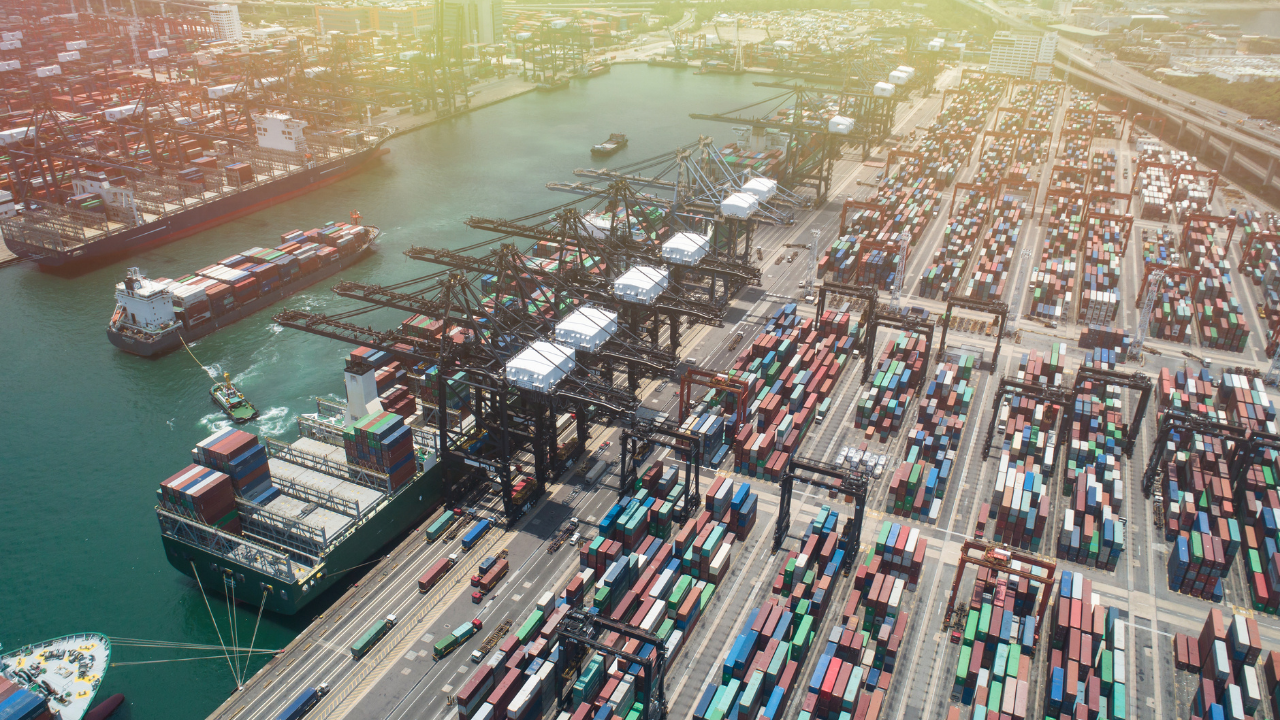The sectors and stocks that can withstand supply chain shocks
The numbers are quite staggering. In Australia, two out of every three businesses have been knocked by supply chain chaos, according to a survey conducted by the Australian Industry Group. And on a global basis, in February it was taking more than 10-times longer for freight to move to the US from Asia than from over the border in Mexico.
But some companies are able to thrive despite – or in some cases, because of – supply chain shocks, as outlined in the third and final instalment of this supply chain series.
In part one, our four contributing fund managers discussed what they regard as the most important factors driving the supply chain challenges we’ve all experienced in the last couple of years.

And in part two, they provided their views on whether they regard the crunch as a temporary or longer-term phenomenon.
.png)
In the below discussion, they each delve into some of the attributes their teams target, including several companies they regard as well-positioned to weather the ongoing supply-chain snarls.
2 beneficiaries of the challenges
Francyne Mu, Franklin Templeton
As global growth investors, we have been focusing on companies using innovation to increase supply chain efficiencies and reliability. We feel the following companies are well-positioned to benefit from helping their customers manage a demanding and dynamic supply chain environment.
Zebra Technologies Corp (NASDAQ: ZBRA)
The mobile computing company has been able to adapt to supply chain pressures, while also helping corporates increase their supply chain efficiency. The company designs, manufactures and sells automatic identification and data capture products. Its barcode printers and scanners help companies manage their inventory and asset investments more accurately and efficiently. Zebra’s products and solutions facilitate the digitisation of a company’s physical workflows so that they can be more effectively implemented, tracked, and analysed in real-time.
For example, Zebra’s RFID solutions enhance the capacity to audit and record incoming and outgoing freight, by enabling significantly faster throughput and reduced error rates. Pairing these RFID capabilities with Zebra’s barcode scanning technology allows for real-time, point-to-point freight tracking, which enhances resource planning and customer response. These scanners and data capture capabilities allow retailers to accept returns and reintegrate merchandise back into existing inventory.
DSV Freight Forwarding (CPH: DKK)
The Dutch global transportation and logistics company acts as a facilitator and coordinator, serving companies looking to ship goods across the globe across a variety of transport modes including, land, sea and air. DSV acts as the metaphorical grease in the wheels of a complex global supply chain. In 2021, the company shipped over 4 million tons of air and sea cargo, including coordinating each shipment's unique requirements.
The scale and capabilities that DSV possess place it in a strong competitive position to serve its customers.
For example, with a large portion of transcontinental passenger aircraft grounded - planes usually carry 40-50% of all airfreight - a severe shortage of airfreight capacity developed nearly overnight, often stranding freight in various regions. DSV’s large scale and established agreements with dedicated freight aircraft owners enabled it to secure air cargo space for its customers to keep their freight moving.
Why tracking and transparency are key
Bill Pridham, Ellerston Capital
The ability for companies to trace raw materials through the entire supply chain is rapidly becoming a key differentiator. The need to address supply chain challenges driven by COVID and geopolitics is relatively well known by now, including second-order effects such as spikes in consumer demand. These highlighted problems with the rigidity of existing supply chain arrangements.
As part of companies’ efforts to rebuild their supply chains to address these challenges, other aspects of sustainability are increasingly important. Improved traceability of raw materials and products is a key factor here.
Improving the transparency of these inputs to company manufacturing and distribution processes is also driving a need to comply with industry certifications such as the:
- Sustainable Forestry Initiative, and
- Modern Slavery Act.
This requires significant technology investment across industries, requiring huge volumes of data collection to put in place the required “supply chain mapping.”
A few examples of companies we believe are well-positioned in light of their efforts in the areas mentioned above include:
Bureau Veritas (EURONEXT: BSV)
The French certification and testing firm has an almost 200-year history and operates across most industries including:
- Building and Infrastructure
- Agri-food and Commodities,
- Marine and Offshore,
- Industry,
- Certification and
- Consumer Products.
ASOS (LSE: ASC)
The UK-listed online fashion retailer has targeted the delivery of full public transparency of every own-brand product by 2030. Its partnership with Bureau Veritas includes product testing in more than 10 countries. It also includes an assessment of factory operations in more than 15 global locations to audit suppliers’ use of raw materials and chemicals.
Sysco (NYSE: SYY)
The US food service distributor has been working with the World Wide Fund for nature for more than a decade to improve the sustainability of seafood harvesting. The company has committed to working with the WWF to source responsibly farmed and traceable seafood that avoids destroying natural ecosystems.
“We prefer industrial companies”
Vince Pezzullo, Perpetual Asset Management Australia
We think these disruptions and resulting inflation and rate hikes are unpicking the markets’ multiyear reliance on cheap debt and the ability of companies to exploit the intricacies of the so-called “DuPont ROE” to maximise the value of corporate equity.
For decades, CEOs have been able to use global supply chains and cheap offshore labour to continuously improve margins, asset turnover and other factors to generate exceptional returns. We think the fragmentation of this model presents challenges for companies vulnerable to these changes.
As investors, we are focused on companies that are less vulnerable to the risks mentioned above. Our long-standing focus on quality balance sheets means that we screen out highly indebted companies.
We also prefer companies with strong industrial bases, such as Brambles (ASX: BXB), which is well-positioned in its industry, enabling the firm to ride through the challenges currently underway.
Companies that are more resilient than most
Catherine Yeung, Fidelity International
We see companies emerging from the current supply chain crunch with revamped better-diversified supplier networks that, in the long run, will only make them more resilient to external shocks. This, in effect, is what we mean by re-globalising.
Here, we take a regional look at how companies in a couple of key industries in Asia are evolving their supply chains, particularly in garment production and semiconductor manufacturing.
Shenzhou International Group (HK: 2313)
This apparel company which makes clothing for Nike, Uniqlo, and Lululemon, has in recent years diversified its client base and added plants abroad. These serve to shield its supply chain from a tumultuous global economy.
Silergy Corp (TWSE: 6415), SG Micro Corp (SZSE: 300661) and Texas Instruments (NASDAQ: TXN)
Chipmakers Silergy Corp and SG Micro Corp – both Asia-based – and US firm Texas Instruments. All have been “localising” their raw material to get around global bottlenecks. The first two, in particular, have accelerated these efforts in the last two years, trying to outflank rising geopolitical tensions between the US and China.
Tesla (NASDAQ: TSLA) and Midea Group (SZSE: 000333)
US electric vehicle manufacturer Tesla and Chinese consumer tech firm Midea Group both make products that are benefiting hugely from the rising connectivity of technology devices. They’re also both on extensive hiring binges, scooping up staff with expert knowledge and ties to highly regarded Taiwanese chipmaker, TSMC.
The wrap-up
In this series, we asked four fund managers the what, how long and who of supply chains. A few common threads run through their responses. All broadly agree on the three core drivers of supply chain challenges – COVID, geopolitics and de-globalisation. But we saw some other points raised in the way sustainability more generally (Bill Pridham) and decarbonisation specifically (Vince Pezzullo) are playing a role.
Asked whether the changes made by companies in response to the challenges will be long-lived, the answer is yes. Both Pezzullo and Mu said that at least some parts of the way companies manage their supply networks are forever changed. And my colleague Hans Lee summed up Pridham’s view neatly with the line that “supply chains are meeting their ESG moment” – again concurring with the structural view.
These points converged in this final part, which I hope has provided food for thought in the types of global companies likely to weather the changes better than some.
Follow me for more like this
Enjoyed this wire? Give it a "like" by clicking the button below, you'll also be notified when other parts of this series are published. In parts one and two, the fund managers provided their views on what's behind the supply chain challenges, and whether they're likely to be structural or transitory.
3 topics
2 stocks mentioned
8 contributors mentioned

